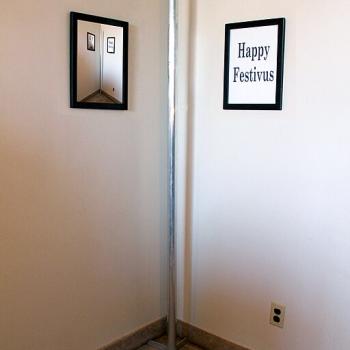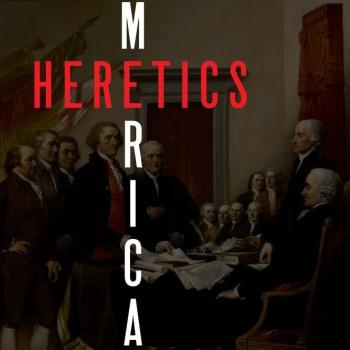Those who of you who thought I had gone off the deep end with last week’s critique of Dr. Ben Carson’s National Prayer Breakfast speech will probably be even more disturbed by the fact that today I will be speaking at an international conference on secularism. (I explain my decision to accept the invitation to do a plenary session at this conference in a post that appeared yesterday at The Washington Post).
In light of the “Secularism on the Edge” conference at Georgetown University in Washington D.C. this week, a reporter asked me to answer a few questions about secularism. I thought if I posted the questions and my answers here at The Anxious Bench it might trigger some good discussion.
Q: Why is the question of whether America is a Christian nation or a secular nation important? (WHY SHOULD MY READERS CARE?)
Fea: First a little history. This was not a question that many people were asking until the 1970s when the emerging Christian Right, led by Jerry Falwell and others, began to convince their followers that “secular humanism” was creeping into schools and other parts of public life and in the process eroding the Christian character of the nation. The question of whether or not America is a Christian nation thus became a major battleground in the culture wars. So why does this matter? It matters because the idea that we are a Christian nation or were founded as a Christian nation informs the way Christian conservative politicians justify policy–from abortion, to stem-cell research, to gay rights, and to what our kids should be learning in school. The defense of America as a “secular” nation has been a response to this view.
Of course it is very difficult to understand or debate this question without appealing to American history. That is why I wrote Was America Founded as a Christian Nation?: A Historical Introduction. The historical record does not conform to easy “yes” or “no” answers to the contemporary question of whether or not the United States is a Christian nation. We thus must appeal to the past with caution. Unfortunately, this rarely happens.
Q: Are we seeing a rise in secularism in the US? Why or why not?
Fea: It depends what you mean by secularism. If you take secularism to mean a philosophy that rejects God or religion in favor of pure reason, then I think a recent study by Pew has suggested that the number of so-called “nones” is slightly on the rise. If you define secularism as Jacques Berlinerblau does in his book How to Be Secular: A Call to Arms for Religious Freedom, then I have no idea if secularism is on the rise. (I am a historian, not a sociologist. I am sure someone out there can answer this). Berlinerblau argues that secularism is more of a political philosophy than a religious one. Secularists believe in something akin to the separation of church and state. They do not believe that government or government officials should be in the business of promoting religion. If we define secularism this way, the historical record reveals a lot of so-called “secularists,” especially Baptists (Roger Williams), Anabaptists (Mennonites, Brethren, Amish), and Lutherans (Martin Luther). So while I am not sure if this form of secularism is currently on the “rise,” it definitely has a long history in American life.












